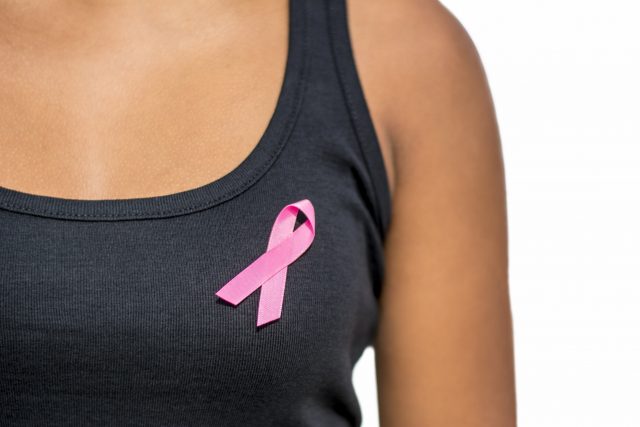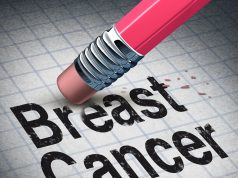 A 23-year-old Missouri woman with a family history of cancer was told she had the BRCA gene mutation that could lead to breast cancer. She followed her doctors recommendation to undergo a double mastectomy, only to find out nearly 10 years later that she was actually negative for the gene.
A 23-year-old Missouri woman with a family history of cancer was told she had the BRCA gene mutation that could lead to breast cancer. She followed her doctors recommendation to undergo a double mastectomy, only to find out nearly 10 years later that she was actually negative for the gene.
Maureen Boesen has a higher risk than others of developing cancer, as her mother had breast cancer at a young age and her grandmother died of ovarian cancer at age 44. Both Boesen and her sisters were enrolled in a university study when they were very young to check whether they had the BRCA gene mutation, the gene that signifies a high chance of developing breast and ovarian cancer.
The terms of the study were that the girls could choose to learn their results when they turned 21, and they later discovered that two out of three of them tested positive for the gene, with Boesen being one.
According to KSHB in Kansas City, Boesen was “devastated’ by these results. “I knew what breast cancer and ovarian cancer can to do a family,” she said. “You know, my first question out of my mouth was, is there any chance this could be wrong? And the researcher said no.”
So, putting full faith in the researchers, Boesen underwent a double mastectomy to decrease her risk of developing breast cancer. Because the gene also points to a higher risk of developing ovarian cancer, her doctors also recommended she have a complete hysterectomy by the time she was 35.
That’s how Boesen discovered that the original results were wrong. As she’s now in her early thirties, and has had three children, she made plans to move forward with the hysterectomy. Her insurance company required that she be retested for the BRCA gene.
Boesen was, of course, shocked by her results: “I was at work, and the first thing [the doctor] said was, we need to talk. And my heart just sank. And she said, ‘You’re negative!’ and I just started bawling. I was angry. I was regretful. I was happy. I was sad.”
Although Boesen wanted to feel relieved, she found it quite difficult not to be so devastated. Not only did her incorrect test results cause her a lot of anxiety and grief for many years, they also led to an unnecessary, invasive surgery that prevented her from breastfeeding her three children. “My life has been great,” she said. “I’m incredibly fortunate, I’m blessed. But it just could have been different.” The researchers from Boesen’s original study will retest her DNA, but she doesn’t anticipate that it’ll come back positive.
Boesen is not the only one to undergo such an invasive surgery after receiving incorrect information about breast cancer risk. Some patients have even been told they have cancer, later to find out that they don’t. Stories like this one are a good reminder to always get a second opinion when it comes to a crucial health issue.




























